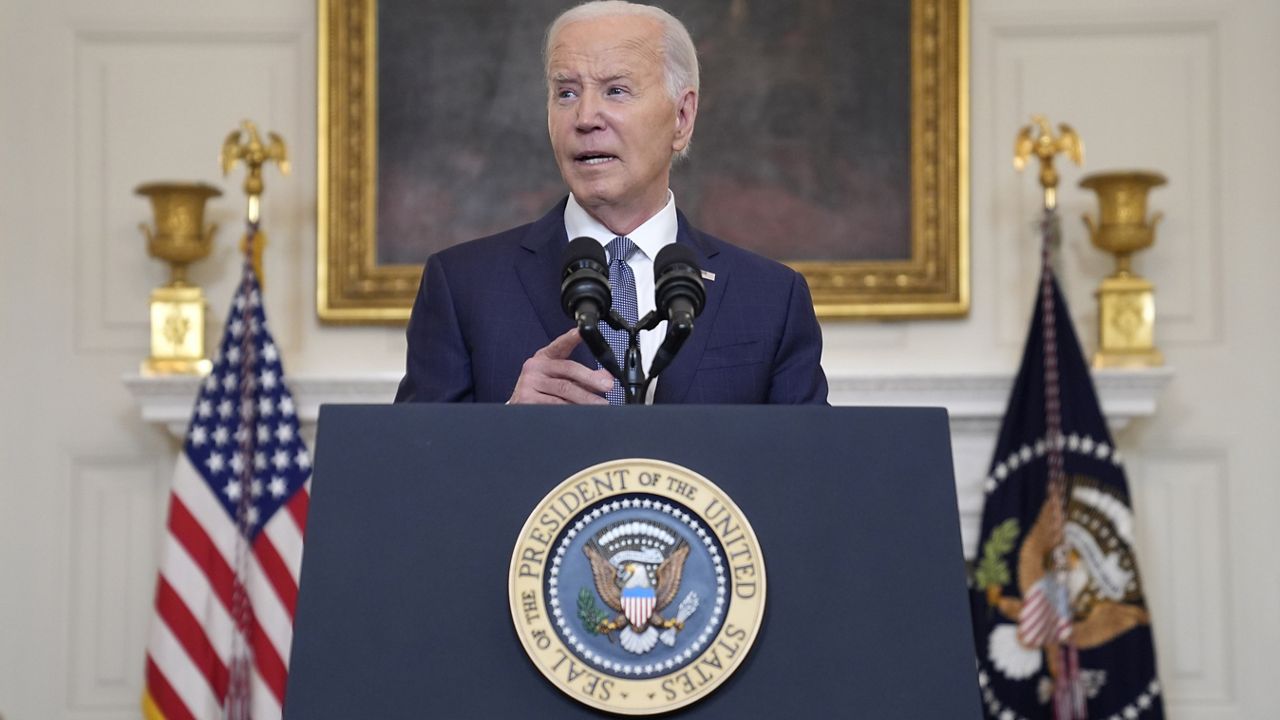The White House on Monday stressed it was “confident” that the proposal for a cease-fire in the war in Gaza laid out by President Joe Biden on Friday reflects what Israel has signed onto and presented to Hamas as confusion over Prime Minister Benjamin Netanyahu’s stance swirled over the weekend.
“I've heard different statements coming out of Israel, the Israeli foreign minister himself acknowledged that this was the Israeli proposal, that it was accurately – that it is the Israeli proposal, and we're confident that it accurately reflects that proposal, a proposal that we worked with the Israelis on,” White House National Security Communications Advisor John Kirby told reporters on a call on Monday.
Kirby went on to push back against reporting by local Israeli media that Netanyahu told officials that there are gaps between his government’s outlook and the proposal Biden announced on Friday, telling reporters he knows of “no gaps to speak of.”
“As for the gaps, I don't know what gaps you're referring to,” Kirby said.
On Friday, Biden took to the White House State Dining Room to lay out a three-phase proposal that he said Israel offered to Hamas on Thursday that seeks to facilitate the release of all hostages and ultimately bring an end to the fighting in Gaza.
The first phase would include a “full and complete” cease-fire for at least six weeks, secure the release of women, the elderly and the wounded still being held hostage by Hamas, free hundreds of Palestinian prisoners in Israel and enable a “surge” in humanitarian aid into Gaza. The next stage, which would be negotiated during the six-week cease-fire, would include a “permanent end to hostilities” and the release of all remaining hostages, which includes male soldiers. The last step is the movement toward a “major reconstruction” plan for Gaza that would include the return of the remains of dead hostages to their families.
Biden emphasized it was up to Hamas to accept the deal.
But Israel’s stance on it all became murky in the following hours and over the weekend as Netanyahu insisted Israel remains steadfast on destroying Hamas’ military and governing capabilities as a condition for ending the war. During his remarks on Friday, Biden declared that Hamas is “no longer capable” of carrying out another Oct. 7, the day in which Hamas attacked Israel, leaving about 1,200 people dead and sparking the war.
Two members of Netanyahu’s government have since threatened to leave if the prime minister endorsed the proposal that Biden said Israel already sent Hamas, appearing to complicate matters for the Israeli leader and add to the confusion.
Kirby on Monday insisted that while “diplomatic efforts” by the U.S. played a role, the potential deal announced by Biden was Israel’s own proposal.
“It's the result of our own diplomatic efforts with Israel but it is their proposal that they have, again, publicly acknowledged is in fact, their proposal,” he said, adding that the U.S. did inform Israel that Biden was going to give remarks on the plan on Friday.
While Biden said the third phase of the potential deal would focus on the movement toward a “major reconstruction” plan for Gaza, there was no talk on Friday of a two-state solution – something Biden has said is the only answer for the future and Netanyahu has pushed back on.
Asked about the lack of mention of a Palestinian state during Biden’s remarks, Kirby said the proposal “is primarily designed to do three things: get hostages out, again in a phased approach, get more humanitarian aid in, again, in a phased approach, hopefully up to 600 trucks a day, and then get a ceasefire in place.”
“It doesn't talk about a two state solution or what the day after governance could look like because that's not what it's about, it's really about getting the hostages home,” he added.



